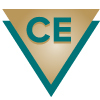Sarah Kolb, BAS, CVT, LAT, VT (CP-Exotics)
Course Open: August 10-September 17, 2023
Real Time Sessions (RTS): Thursdays, August 17, 24, 31, and September 7, 2023; 8:30-10 pm ET (USA) World Clock Converter
Total CE Credit: 6
RACE Category: 6 hours Medical
| Enrollment is closed. |
Tuition: $126 ($113 early bird special if enrolled by July 27, 2023) |
Course Information:
This course is designed to provide participants with a review of the unique anatomy and physiology of avian species while also providing information about the common disease conditions that can affect pet birds. Participants will learn how to assess, triage, and handle debilitated pet birds. Causes, clinical signs, diagnostic tests, nursing management, prognosis, and treatment options of common disease conditions in pet birds will be discussed.
- Describe the unique anatomy and physiology of the avian respiratory system
- Demonstrate how to recognize, restrain, and perform diagnostics on a bird in respiratory distress
- Understand causes, clinical signs, diagnostic tests, nursing management, prognosis, and treatment options of common respiratory & cardiovascular diseases of psittacines
- Describe the unique anatomy and physiology of the avian gastrointestinal system
- Discuss the nutritional needs of various avian species and the common disorders caused by inappropriate diets
- Perform a thorough assessment of bird droppings and recognize abnormalities
- Understand causes, clinical signs, diagnostic tests, nursing management, prognosis, and treatment options of common gastrointestinal and endocrine diseases
- Describe the unique anatomy and physiology of the avian reproductive system
- Understand the avian renal portal system
- Understand causes, clinical signs, diagnostic tests, nursing management, prognosis, and treatment options of common reproductive and hepatic diseases
- Describe the anatomy of feathers, avian skin, and the uropygial gland
- Discuss the unique anatomical characteristics of the avian eye
- Discuss the unique anatomical characteristics of the avian musculoskeletal system
- Understand causes, clinical signs, diagnostic tests, nursing management, prognosis, and treatment options of common skin, musculoskeletal, and ophthalmic diseases
RACE Accreditation: This program has been approved for 6 hours of continuing education credit in jurisdictions which recognize RACE approval.(20-1051672)
Course Agenda:Week 1 (Real Time Session August 17): Respiratory & Cardiovascular Diseases
During this session attendees will learn the unique anatomy and physiology of the avian respiratory system. Understand causes, clinical signs, diagnostic tests, nursing management, prognosis, and treatment options of common respiratory & cardiovascular diseases of psittacines. Proper techniques to recognize, restrain, and perform diagnostics on an avian in respiratory distress.
Week 2 (Real Time Session August 24):
Gastrointestinal/Nutritional & Endocrine Diseases
During this session attendees will be able to describe the unique anatomy and physiology of the avian gastrointestinal system with nutritional needs of various avian species and their common disorders caused by inappropriate diets. Understand causes, clinical signs, diagnostic tests, nursing management, prognosis, and treatment options of common gastrointestinal and endocrine diseases. Proper techniques to perform an assessment on bird droppings and abnormalities found.
Week 3 (Real Time Session August 31):
Reproductive & Hepatic Diseases
During this session attendees will be able to describe the unique anatomy and physiology of the avian reproduction system. Understand the avian renal portal system and the causes, clinical signs, diagnostic tests, nursing management, prognosis, and treatment options of common reproductive and hepatic diseases.
Week 4 (Real Time Session September 7):
Skin, Musculoskeletal, & Ophthalmic Diseases
During this session attendees will be able to describe the anatomy of feathers, avian skin, and the uropygial gland. Discuss the unique anatomical characteristics of the avian eye & musculoskeletal system. Understand causes, clinical signs, diagnostic tests, nursing management, prognosis, and treatment options of common skin, musculoskeletal, and ophthalmic diseases.
Successful completion (scoring 80% or better) on the end-of-course test is required to earn a certificate of completion for the course. To learn more about the requirements for earning a CE certificate, please refer to Receiving Your CE Credit and Course Completion Certificate.
Course Materials: Course materials will be available in the course library prior to each Real Time Session.Required Textbook(s): There is no required textbook for this course.
| Enrollment is closed. |
Tuition: $126 ($113 early bird special if enrolled by July 27, 2023) |
- Enrollment qualifications: VIN CE courses are open to VIN member and non-member veterinarians. Veterinarians enrolling in a VSPN CE course must be a VIN member. Veterinary support staff must be a VSPN member to enroll in a VSPN CE or a VIN CE course open to VSPN member enrollment.
- Each enrollee must be able to receive emails from @vspn.org and @vin.com addresses. Email is our major form of communication with participants; personal emails are highly recommended rather than clinic/hospital email addresses.
- For further assistance call 800-846-0028 ext.792 or email VSPNCE. Please include the course title, your full name, and contact information in your correspondence.
800-846-0028 or 530-756-4881; ext. 792
or direct line to VIN/VSPN from the United Kingdom: 01 45 222 6154
or direct line to VIN/VSPN from Australia: 02 6145 2357



